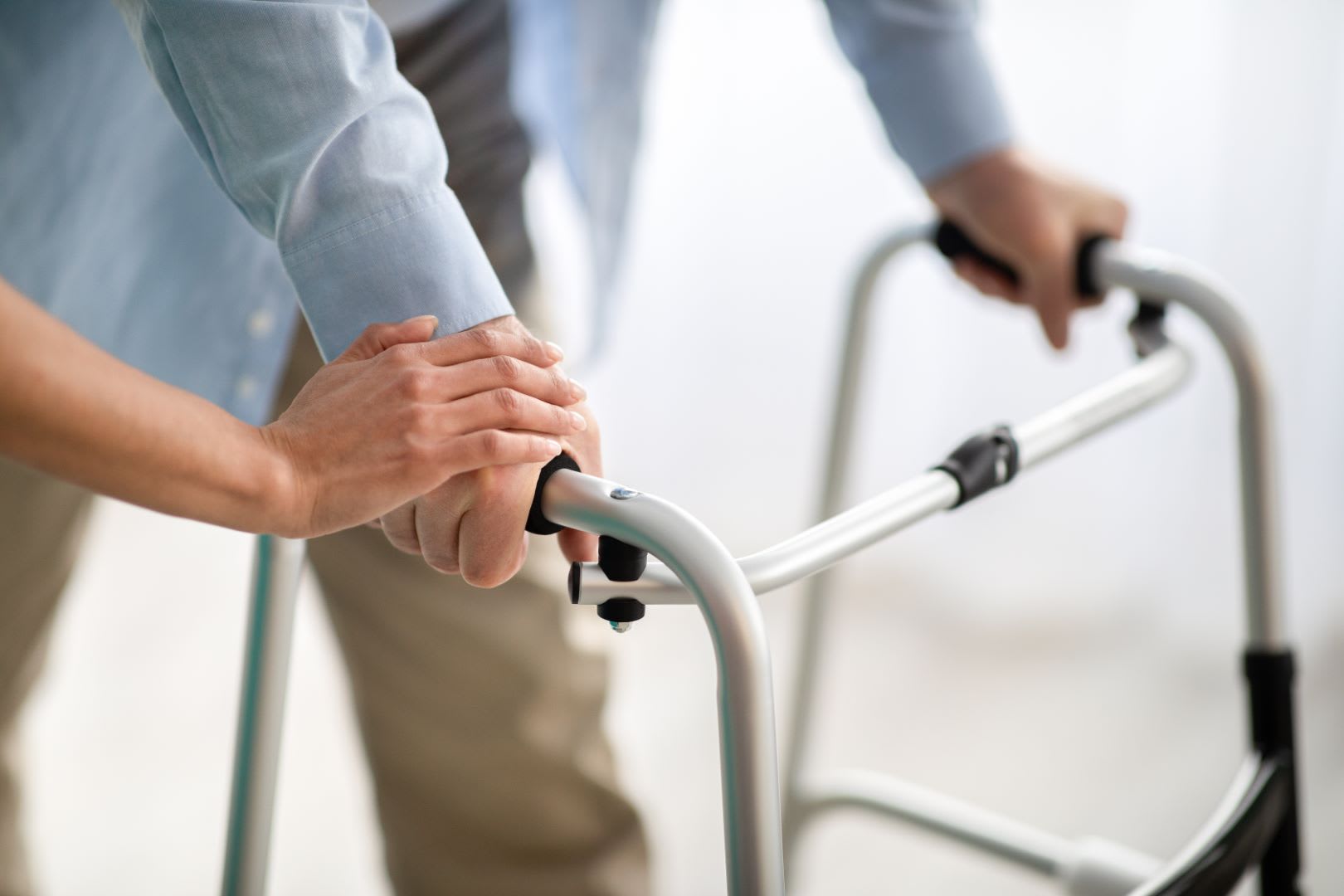
How to Care for Someone with Parkinson's: A Guide for Families

Posted on August 26, 2024
Caring for someone with Parkinson's can indeed be a journey filled with both challenges and deeply meaningful moments. It goes beyond just managing symptoms; it’s about creating a nurturing environment where your loved one can feel supported and valued at every stage of their journey.
This isn’t just a role you take on; it’s a commitment to another person's well-being, one day at a time. Each day may bring new obstacles, but it also brings opportunities to forge deeper connections and instill a sense of dignity in their everyday life.
From the early stages of recognizing those subtle signs like a mild tremor or slight stiffness, it's often an uncharted territory where both you and your loved one find yourselves learning together. Understandably, this can be overwhelming. You find yourself asking, “How do I make sure I'm doing enough?”
By focusing on adapting your care strategies to the evolving nature of Parkinson’s, you become not just a caregiver but a source of steadfast support. It means being ready to adjust daily routines, taking into account everything from mobility challenges to the emotional ups and downs that can accompany the disease. Continuously educating yourself about these aspects prepares you to offer the care that your loved one deserves.
Let's explore some of the practicalities that can help make this challenging journey a bit smoother for both of you.
Acknowledging Parkinson's Needs
Having a thorough comprehension of what to expect when caring for someone with Parkinson's will not only help you provide better care but also create a more supportive and loving environment for your loved one. Here's what the symptoms of Parkinson's:
- Motor Symptoms: Parkinson's is often initially recognized by its motor symptoms, which can include tremors, muscle rigidity, and bradykinesia, or the slowness of movement. Over time, these motor symptoms tend to worsen, making daily activities increasingly challenging. It might start with a slight tremor in one hand, but eventually, your loved one may need assistance with tasks like buttoning a shirt or brushing teeth.
- Non-Motor Symptoms: Non-motor symptoms such as depression, sleep disturbances, and cognitive changes also play a significant role in the lives of those affected. Depression and anxiety, for example, might not be as visible, but they are equally important to address. Plus, cognitive changes can affect memory and decision-making abilities, requiring more oversight and patience.
Practical Tips for Parkinson's Caregivers
It's time now to get into some practical tips for Parkinson's caregivers to help manage the day-to-day.
1. Create a Safe and Comfortable Environment
One key aspect is creating a safe and comfortable environment at home. As mobility becomes more challenging, prioritize safety:
- Start by removing tripping hazards such as loose rugs, electrical cords, and clutter.
- Install grab bars in the bathroom and make sure that lighting is adequate throughout the home.
- Consider using non-slip mats and placing frequently used items within easy reach to minimize unnecessary movements.
- It’s also helpful to arrange furniture to allow for clear and wide pathways for easier navigation, whether your loved one is using a walking aid or simply moving slowly.
2. Consider Incorporating Walking Aids

Walking aids are invaluable tools in maintaining mobility and independence. You might be wondering, how to help someone with Parkinson’s walk?
- First, consult with a physical therapist who can recommend the appropriate aids based on the individual's needs. This could range from a simple cane to a more supportive walker.
- Encourage your loved one to take slow, exaggerated steps, helping to reduce the risk of shuffling and falls.
- Make sure that they wear sturdy, well-fitting shoes with a wide base for better balance.
- Consider incorporating a rhythm, such as walking to music or using rhythmic cues to maintain a steady pace.
3. Be Patient and Creative When Assisting With Daily Tasks
Managing daily activities requires patience and creativity:
- Encourage your loved one to take their time and break tasks into smaller, manageable steps.
- Things like adaptive clothing with Velcro fastenings or elastic waistbands can make dressing easier.
- Introduce utensils with larger grips or weighted handles to aid with eating.
- Regarding personal care, such as bathing or grooming, assistive devices like shower chairs or electric toothbrushes can be incredibly helpful.
The goal is to foster independence whenever possible while providing the necessary support. Helping someone with Parkinson’s isn’t just about doing things for them but empowering them to do things for themselves, safely and confidently.
4. Ensure Effective Medication Management
The medications prescribed for Parkinson's often need to be taken at specific times to maintain their effectiveness and minimize side effects:
- Set reminders, either through alarms or smartphone apps, to make sure that doses are not missed.
- Keep a detailed log of all medications, including dosages and times, and regularly consult with a neurologist or primary care physician to reassess and adjust as necessary.
- Communication with pharmacists can also be beneficial for being aware of potential interactions or side effects that need monitoring.
- It can be quite beneficial to involve your loved one in this routine to the extent they can, fostering a sense of autonomy despite the illness.
5. Don't Forget Medical Appointments
Managing Parkinson's appointments can sometimes feel like a full-time job. Regular visits to various healthcare professionals, including neurologists, physical therapists, and occupational therapists, are often necessary.
- Utilize a planner or digital calendar to keep track of all upcoming appointments.
- Try to schedule them at a consistent time frame, such as the first Tuesday of each month, to create a manageable routine.
- Prepare for appointments by keeping a symptom diary, noting changes or concerns that arise between visits. This helps provide a full picture to the healthcare provider and ensures no issue is overlooked.
- Also, consider bringing a family member or friend with you to appointments for additional support and to help take notes.
- Preparing questions in advance and discussing them with the healthcare team can make these appointments more productive and less overwhelming.
6. Consider End-of-Life Care
As the disease progresses, being proactive rather than reactive can provide a greater sense of control and peace of mind.
- Begin by discussing your loved one's wishes with them if they are able, and involve close family members in these conversations.
- Consider legal and financial planning, such as establishing power of attorney and creating living wills.
- Engaging with healthcare professionals about advanced care planning can also offer guidance tailored to your loved one's specific situation.
- Explore options for hospice care or homecare services that offer not only practical help but also emotional companionship during these challenging times.
This planning isn't meant to be pessimistic but rather a compassionate approach to make sure that your loved one's preferences and dignity are maintained throughout their journey.
Related: Home Care vs Nursing Home: Which is Right for Your Loved One?
Wrapping Up
When you're caring for someone with Parkinson's, the journey involves continuous learning and adapting, but you don't have to do it alone. Bringing in professional help can make a world of difference, providing not only relief for you but also specialized aid that can greatly benefit your loved one. That's where our services come in.
At Theresa's Place #1 Homecare in East Orange, New Jersey, we believe in delivering compassionate in-home healthcare services tailored to meet the unique needs of each individual.
Our dedicated team of caregivers is trained to handle a variety of health conditions, including whether they're dealing with Parkinson's, Alzheimer's, or dementia care, veterans' care, and support for disabled children. We understand that effective caregiving is as much about emotional support as it is about physical help. By bringing experienced professionals into your home, you can make sure that your loved one receives the high-quality care they deserve while you take a necessary breather.
Isn't the peace of mind priceless, knowing that your loved one is in capable hands? You don't need to manage everything on your own. Sometimes the most loving thing you can do is to ask for help. Contact Us Now!
Reach out to us today at (201) 623-2900 to discuss how our homecare services can be customized to fit your family's specific needs.
Connect With Us for Compassionate Care
Reach out to Theresa's Place #1 Homecare today for personalized, reliable non-medical homecare services in East Orange. Let us support your family with dignity and empathy.
